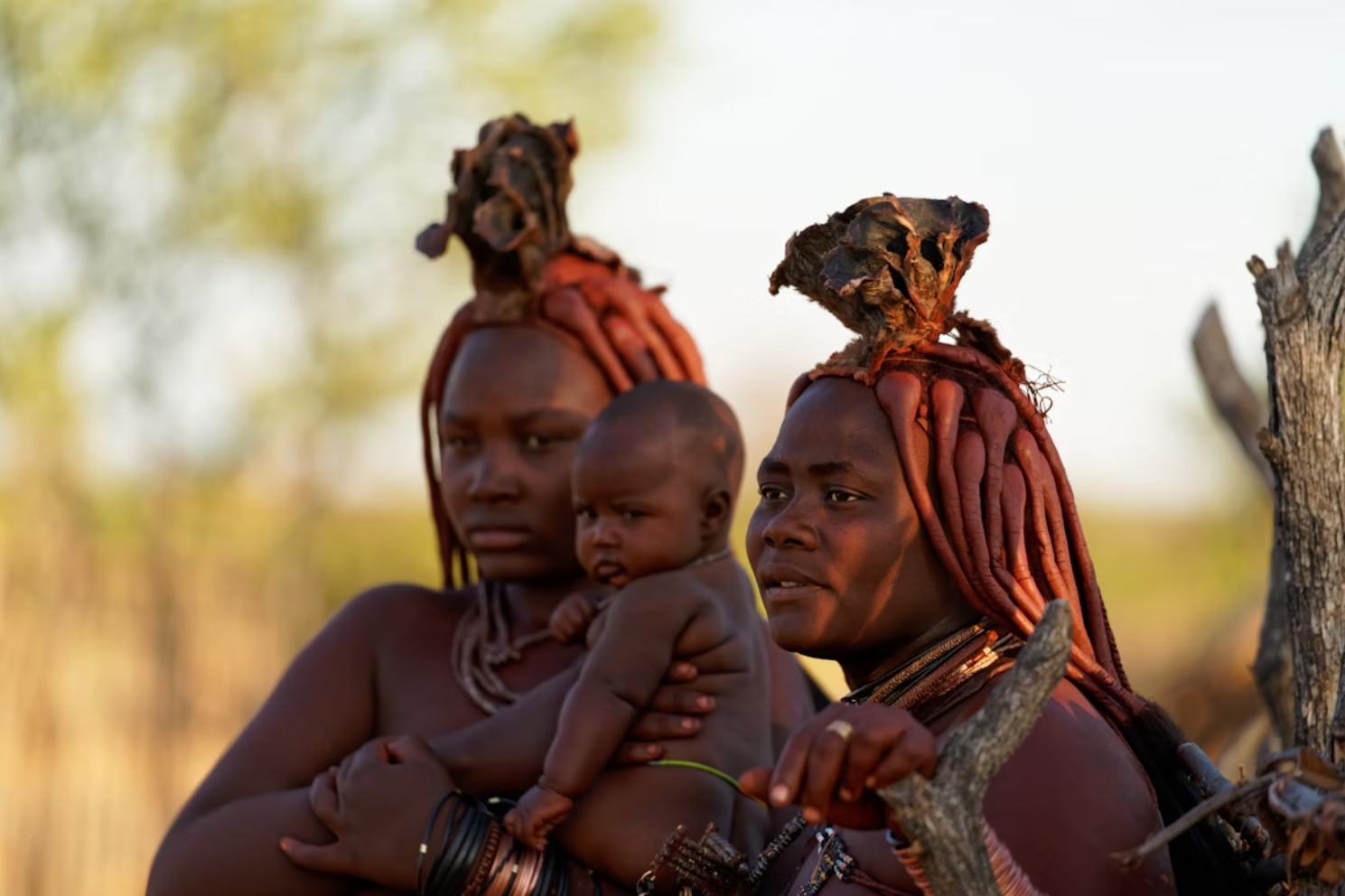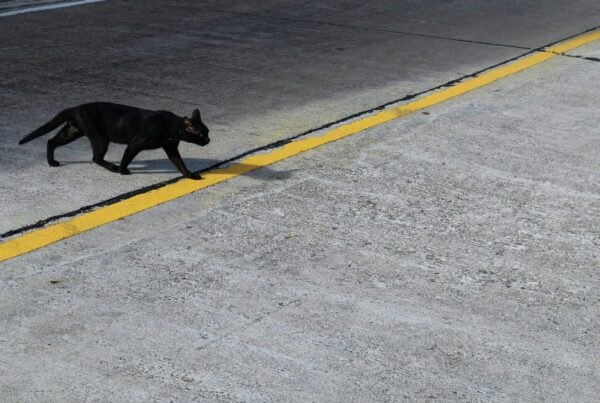
What if some truths are better left unknown? Pursuing and attaining knowledge has always been societally understood as a win, but is it still valuable when it comes at the expense of others? Where should we draw the line?
What if some truths are better left unknown? Pursuing and attaining knowledge has always been societally understood as a win, but is it still valuable when it comes at the expense of others? Where should we draw the line?

Photo by Collin Watts

Photo by Collin Watts
What if some truths are better left unknown? Pursuing and attaining knowledge has always been societally understood as a win, but is it still valuable when it comes at the expense of others? Where should we draw the line?
At 19:00 on February 12, 2025, a young boy was discovered on the banks of the Purús River in the Brazilian Amazon. The boy, covered by only a loincloth, was not recognized by the locals of Bela Rosa, the riparian village he had approached. Calmed and in good health, the youngster seemed to seek help from the people to start a fire. One of the locals tried unsuccessfully to explain the use of a lighter. Within 24 hours, the individual returned to the forest voluntarily. In response to the encounter, a team of healthcare professionals was dispatched to ensure that the boy had not contracted any diseases and to prevent outsiders from attempting to track down his origin, likely that of an uncontacted Indigenous tribe (Fabiano Maisonnave, 2025).
Encounters like this highlight the ongoing dilemma surrounding the protection of isolated Indigenous groups and raise questions about their morality. How ethical is it to withhold indigenous tribes from modern technologies, knowledge, and medicine just to preserve their isolation? Is it a selfish move or an altruistic act?
There are more than 100 uncontacted tribes spanning from Indonesia to the Amazon that continue to host untouched traditions and social dynamics (International & International, n.d.), which keeps astonishing academics around the world. Their isolated existence has drawn many disciplines across the scientific community to consider them a source of anthropological and biological knowledge, otherwise unattainable. By delving into research about their routines, traditions and morphology, realms such as anthropology, sociology, linguistics, psychology, medicine, biology, and even engineering have advocated for the preservation of these indigenous tribes and opposed any form of intrusion from the outside world to protect this unspoiled phenomenon (Lipe, 2013). Although responding this way seems to be the rational approach, it raises some critical question: Who are we doing this for? Is this truly for the benefit of indigenous communities, or is it just another selfish act from developed societies?
“History is filled with incidents that forced scientists to apologize, reflect, and revise their study’s conduct or modus operandi, shaping modern research ethics in the process.”
These are not easy questions to answer, and different perspectives emerge on the matter. The Organization Survival International, a non-governmental organization advocating for the protection and survival of indigenous tribes, stresses that the best way to prevent the destruction of the Amazon rainforest is to campaign for the land rights of uncontacted tribes (International & International, n.d.). In this way, many consider that respecting the autonomy of uncontacted tribes and protecting them from disease and exploitation is the way to go. On the other hand, some activists question the ethicality of denying these groups access to medicine, education, or global awareness. This opens a wider debate on cultural preservation versus universal human rights.
The search for a balance between research inquiry and the protection of a vulnerable population does not, however, cease with uncontacted tribes. Scientific and psychological progress often clashes with ethical boundaries. Ethical research attempts to strike a balance between the pursuit of knowledge and the moral lines that must not be crossed.
It is, however, no surprise that the scientific community has repeatedly found itself in the spotlight for crossing ethical lines. History is filled with incidents that forced scientists to apologize, reflect, and revise their study’s conduct or modus operandi, shaping modern research ethics in the process. These issues reflect a broader tension within scientific inquiry: the constant push and pull between the intellectual inquiry and the responsibility to harbor human rights.
Looking back, it’s easy to recognize how horrifying some past experiments were, and how troubling it is that their ethics were rarely questioned at the time. From Nazi medical atrocities during the Holocaust to the infamous Milgram obedience study, history is marked by research conducted with little regard for the participant´s well-being. Even experiments that did not cause physical harm, like Zimbardo’s Stanford Prison Experiment, left behind profound psychological wounds (Haney & Zimbardo, 1998).
“The aim should be to question what is done with certainty or to place a question mark after every event, and to ask ourselves not only “Can we?” but also “Should we?””
These buried abuses led to the development of strict ethical guidelines. Today, frameworks such as informed consent, institutional review boards (IRBs), and the principles outlined in the Declaration of Helsinki (World Medical Association, 2024) and NICE guidelines (National Institute for Health and Care Excellence, 2015) help ensure ethical research. The impact of these agreements resulted in an exponential improvement of research ethics (Dhai, 2025). Yet ethical dilemmas persist, reminding us that vigilance, transparency, and ongoing dialogue are essential to uphold the dignity and rights of research participants in an ever-evolving scientific landscape.
So, will we ever achieve a truly non-invasive and ethically balanced approach in research? It often feels like for every two steps forward, we take one step back.
Whether leaving indigenous tribes untouched is unquestionably ethical or not remains an unresolved matter. As with most complex and contentious debates, arriving at a clear, objective, or universally accepted solution remains difficult. This ongoing tension requires deep philosophical reflection. Ideologies like utilitarianism would claim that the ends justify the means, underpinning scientific justification, while the field of deontological ethics reminds us that some actions are inherently wrong, no matter the outcome. Public opinion, media scrutiny, and activist voices help set these boundaries. They remind researchers that ethical reflection isn’t a one-time checkbox; it’s a continuous, living dialogue. But attaining a conclusion, advocating for one single position should not be the goal. The aim should be to question what is done with certainty or to place a question mark after every event, and to ask ourselves not only “Can we?” but also “Should we?”
The power to discover is extraordinary, but it comes hand in hand with the responsibility to protect. Science, at its best, seeks not only to understand the world, but to do so without losing its humanity. <<
References
- Dhai, A. (2025). The research ethics evolution: From Nuremberg to Helsinki. SAMJ: South African Medical Journal, 104(3), 178–180. http://www.scielo.org.za/scielo.php?script=sci_arttext&pid=S0256-95742014000300016&lng=en&tlng=en.
- Fabiano Maisonnave. (2025, February 17). Moment young indigenous man makes contact with outside world after wandering from isolated tribe in Amazon. The Independent. https://www.independent.co.uk/world/amazon-rainforest-brazil-indigenous-boy-video-b2699693.html
- International, S., & International, S. (n.d.). Uncontacted Tribes – Survival International. Www.survivalinternational.org. https://www.survivalinternational.org/campaigns/uncontacted
- Lipe, D. J. (2013). Diversifying science: Recognizing Indigenous Knowledge Systems as scientific worldviews. ProQuest LLC EBooks.
- National Institute for Health and Care Excellence. (2015, July 22). Developing NICE Guidelines: The Manual. Nih.gov; National Institute for Health and Care Excellence (NICE). https://www.ncbi.nlm.nih.gov/books/NBK310375/
- World Medical Association. (2024, December 13). WMA Declaration of Helsinki – Ethical Principles for Medical Research Involving Human Participants. Wma.net; WMA – the World Medical Association-WMA Declaration of Helsinki – Ethical Principles for Medical Research Involving Human Participants. https://www.wma.net/policies-post/wma-declaration-of-helsinki/
- Haney, C., & Zimbardo, P. (1998). The Past and Future of U.S. Prison Policy: Twenty-Five Years After the Stanford Prison Experiment. The American Psychologist, 53(7), 709–727. https://doi.org/10.1037/0003-066X.53.7.709
What if some truths are better left unknown? Pursuing and attaining knowledge has always been societally understood as a win, but is it still valuable when it comes at the expense of others? Where should we draw the line?
At 19:00 on February 12, 2025, a young boy was discovered on the banks of the Purús River in the Brazilian Amazon. The boy, covered by only a loincloth, was not recognized by the locals of Bela Rosa, the riparian village he had approached. Calmed and in good health, the youngster seemed to seek help from the people to start a fire. One of the locals tried unsuccessfully to explain the use of a lighter. Within 24 hours, the individual returned to the forest voluntarily. In response to the encounter, a team of healthcare professionals was dispatched to ensure that the boy had not contracted any diseases and to prevent outsiders from attempting to track down his origin, likely that of an uncontacted Indigenous tribe (Fabiano Maisonnave, 2025).
Encounters like this highlight the ongoing dilemma surrounding the protection of isolated Indigenous groups and raise questions about their morality. How ethical is it to withhold indigenous tribes from modern technologies, knowledge, and medicine just to preserve their isolation? Is it a selfish move or an altruistic act?
There are more than 100 uncontacted tribes spanning from Indonesia to the Amazon that continue to host untouched traditions and social dynamics (International & International, n.d.), which keeps astonishing academics around the world. Their isolated existence has drawn many disciplines across the scientific community to consider them a source of anthropological and biological knowledge, otherwise unattainable. By delving into research about their routines, traditions and morphology, realms such as anthropology, sociology, linguistics, psychology, medicine, biology, and even engineering have advocated for the preservation of these indigenous tribes and opposed any form of intrusion from the outside world to protect this unspoiled phenomenon (Lipe, 2013). Although responding this way seems to be the rational approach, it raises some critical question: Who are we doing this for? Is this truly for the benefit of indigenous communities, or is it just another selfish act from developed societies?
“History is filled with incidents that forced scientists to apologize, reflect, and revise their study’s conduct or modus operandi, shaping modern research ethics in the process.”
These are not easy questions to answer, and different perspectives emerge on the matter. The Organization Survival International, a non-governmental organization advocating for the protection and survival of indigenous tribes, stresses that the best way to prevent the destruction of the Amazon rainforest is to campaign for the land rights of uncontacted tribes (International & International, n.d.). In this way, many consider that respecting the autonomy of uncontacted tribes and protecting them from disease and exploitation is the way to go. On the other hand, some activists question the ethicality of denying these groups access to medicine, education, or global awareness. This opens a wider debate on cultural preservation versus universal human rights.
The search for a balance between research inquiry and the protection of a vulnerable population does not, however, cease with uncontacted tribes. Scientific and psychological progress often clashes with ethical boundaries. Ethical research attempts to strike a balance between the pursuit of knowledge and the moral lines that must not be crossed.
It is, however, no surprise that the scientific community has repeatedly found itself in the spotlight for crossing ethical lines. History is filled with incidents that forced scientists to apologize, reflect, and revise their study’s conduct or modus operandi, shaping modern research ethics in the process. These issues reflect a broader tension within scientific inquiry: the constant push and pull between the intellectual inquiry and the responsibility to harbor human rights.
Looking back, it’s easy to recognize how horrifying some past experiments were, and how troubling it is that their ethics were rarely questioned at the time. From Nazi medical atrocities during the Holocaust to the infamous Milgram obedience study, history is marked by research conducted with little regard for the participant´s well-being. Even experiments that did not cause physical harm, like Zimbardo’s Stanford Prison Experiment, left behind profound psychological wounds (Haney & Zimbardo, 1998).
“The aim should be to question what is done with certainty or to place a question mark after every event, and to ask ourselves not only “Can we?” but also “Should we?””
These buried abuses led to the development of strict ethical guidelines. Today, frameworks such as informed consent, institutional review boards (IRBs), and the principles outlined in the Declaration of Helsinki (World Medical Association, 2024) and NICE guidelines (National Institute for Health and Care Excellence, 2015) help ensure ethical research. The impact of these agreements resulted in an exponential improvement of research ethics (Dhai, 2025). Yet ethical dilemmas persist, reminding us that vigilance, transparency, and ongoing dialogue are essential to uphold the dignity and rights of research participants in an ever-evolving scientific landscape.
So, will we ever achieve a truly non-invasive and ethically balanced approach in research? It often feels like for every two steps forward, we take one step back.
Whether leaving indigenous tribes untouched is unquestionably ethical or not remains an unresolved matter. As with most complex and contentious debates, arriving at a clear, objective, or universally accepted solution remains difficult. This ongoing tension requires deep philosophical reflection. Ideologies like utilitarianism would claim that the ends justify the means, underpinning scientific justification, while the field of deontological ethics reminds us that some actions are inherently wrong, no matter the outcome. Public opinion, media scrutiny, and activist voices help set these boundaries. They remind researchers that ethical reflection isn’t a one-time checkbox; it’s a continuous, living dialogue. But attaining a conclusion, advocating for one single position should not be the goal. The aim should be to question what is done with certainty or to place a question mark after every event, and to ask ourselves not only “Can we?” but also “Should we?”
The power to discover is extraordinary, but it comes hand in hand with the responsibility to protect. Science, at its best, seeks not only to understand the world, but to do so without losing its humanity. <<
References
- Dhai, A. (2025). The research ethics evolution: From Nuremberg to Helsinki. SAMJ: South African Medical Journal, 104(3), 178–180. http://www.scielo.org.za/scielo.php?script=sci_arttext&pid=S0256-95742014000300016&lng=en&tlng=en.
- Fabiano Maisonnave. (2025, February 17). Moment young indigenous man makes contact with outside world after wandering from isolated tribe in Amazon. The Independent. https://www.independent.co.uk/world/amazon-rainforest-brazil-indigenous-boy-video-b2699693.html
- International, S., & International, S. (n.d.). Uncontacted Tribes – Survival International. Www.survivalinternational.org. https://www.survivalinternational.org/campaigns/uncontacted
- Lipe, D. J. (2013). Diversifying science: Recognizing Indigenous Knowledge Systems as scientific worldviews. ProQuest LLC EBooks.
- National Institute for Health and Care Excellence. (2015, July 22). Developing NICE Guidelines: The Manual. Nih.gov; National Institute for Health and Care Excellence (NICE). https://www.ncbi.nlm.nih.gov/books/NBK310375/
- World Medical Association. (2024, December 13). WMA Declaration of Helsinki – Ethical Principles for Medical Research Involving Human Participants. Wma.net; WMA – the World Medical Association-WMA Declaration of Helsinki – Ethical Principles for Medical Research Involving Human Participants. https://www.wma.net/policies-post/wma-declaration-of-helsinki/
- Haney, C., & Zimbardo, P. (1998). The Past and Future of U.S. Prison Policy: Twenty-Five Years After the Stanford Prison Experiment. The American Psychologist, 53(7), 709–727. https://doi.org/10.1037/0003-066X.53.7.709



